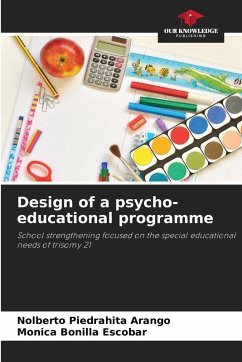
Coercive educational practices and beliefs about coercion
A study on the socio-economic influence
Versandkostenfrei!
Versandfertig in 6-10 Tagen
36,99 €
inkl. MwSt.

PAYBACK Punkte
18 °P sammeln!
The use of coercion by parents to control their children's behaviour has been investigated by several researchers due to its negative consequences for child development. Among the various factors indicated by research as determinants of parental coercion, socioeconomic status has been considered an important factor in understanding this phenomenon. However, while in some studies it appears as the main variable determining the use of more or less appropriate practices, in others its function is questioned, and no direct relationships are found between socioeconomic level and the use of coercion...
The use of coercion by parents to control their children's behaviour has been investigated by several researchers due to its negative consequences for child development. Among the various factors indicated by research as determinants of parental coercion, socioeconomic status has been considered an important factor in understanding this phenomenon. However, while in some studies it appears as the main variable determining the use of more or less appropriate practices, in others its function is questioned, and no direct relationships are found between socioeconomic level and the use of coercion by parents. Furthermore, several studies point out that beliefs about the legitimacy and efficacy of coercion in controlling child behaviour are fundamental to understanding coercive parental practices. This study aimed to compare the use of coercive practices and beliefs about coercion of mothers of different socioeconomic levels.












